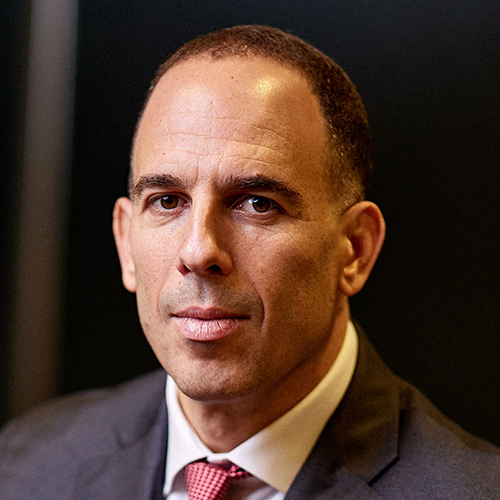
“What could possibly go wrong?” That was how I ended my previous column for The Asset at the end of February, referencing the uphill battle Credit Suisse (CS) – Europe’s remaining large-bank outlier – still faced to make its restructuring work and regain the market’s trust. Alas, once clients start to bail on you, banks ditch counterparty exposures and neutralize all touchpoints, and the market loses confidence, it tends to signal the beginning of the end.
So, CS is unsurprisingly heading for a state-sponsored takeover by UBS but as details weren’t yet final at the time of writing, I won’t make it my topic for today. [Swiss regulators have since brokered a deal in which fellow Swiss bank UBS will buy Credit Suisse for US$3.25 billion. - eds.]
My sardonic comment about CS in February was actually the conclusion to a broader comment about Europe having cleared the decks – CS being the exception – of its legacy problem banks. “No more casualties on the immediate horizon”, I wrote at the very end of February. I stand by my comments.
To be clear, no bank on the planet, no matter how well managed, how robust or well supervised, is immune once an old-fashioned bank run sets in. In a digitalized banking ecosystem in particular, deposits can disappear in a nanosecond, no queues necessary. My point is banks are and have always been vulnerable to an array of latent risks, such as disorderly markets, rumours, criminal activity or black swan events.
Putting latent risk to one side, the melodramatic screeching around Europe’s large banks facing another 2008 moment amid a systemic crisis has been unwarranted and the vicious markdowns in stock and bond prices of large European banks overdone. “Two relatively idiosyncratic events happen and all of a sudden a banking crisis is at our doorstep?” Romain Miginiac, fund manager and head of research at Geneva-based asset manager Atlanticomnium wryly noted in a comment on social media.
The interconnectedness between those idiosyncratic bank events in the US and Europe’s banking sector is basically zero. The US banks, heavily concentrated around crypto and venture capital (VC)-backed tech start-ups, were grievously mismanaged in that they failed to engage in the most basic asset liability management, and their supervision was a disgrace. Nothing more to say.
Making all deposits safe
What I found conceptually fascinating about events in the US was the decision to make uninsured depositors of failed banks whole, in this case to minimize contagion risk. The actions around Silicon Valley Bank and Signature Bank weren’t in the supervisory playbook; they were a “Made in America” solution. Shareholders and unsecured creditors lost their shirts but the state bailout of the banks’ customers (which it was) demonstrated that tracts of the ‘privatize the gains but socialize the losses’ mantra are still very much alive; the terms of the Fed’s emergency Bank Term Funding Program are a generous public subsidy.
Let’s leave aside the sorry sight of VC funds and tech incubators, people operating at the riskiest end of the risk spectrum screaming for state bailouts. Their scaremongering, warning of an extinction-level event if tech start-ups were not spared that would destroy global innovation and set the universe back years, was extravagant – but it did the trick.
The events have caused pause for thought, though. The customer base of the failed US banks was predominantly corporate and their deposit base was mainly made up of corporate deposits or large deposits from tech entrepreneurs. Was it right for them to have been spared? By the same token, should uninsured retail depositors lose their hard-earned money if their bank goes bust?
I’ve been wavering on this. I’d initially come out thinking that bailing out uninsured depositors was a bad move, and I went out on social media with that view, while recognizing that it isn’t a black or white issue. Among the responses I got was one from Mark Leahy, a market veteran and now chief business officer of LedgerEdge, a fintech start-up focused on distributed ledger technology-enabled corporate bond trading.
“SME [small and medium-sized enterprise] corporate treasuries are not equipped to analyse bank balance sheets and make assessments on bank strength,” Leahy wrote. “They look to formal credit ratings, overall scale, and that’s about it. Then they go back to making widgets or moving electrons around – whatever they actually do in their actual business.
“The idea that a small to mid-sized corporate treasurer has the skills of even a junior bank equity analyst is a red herring. This is a regulatory and, again, rating agency failure. The flighty, lumpy quality of the deposit base was clear as day, but only to those who get paid to see such things and then tell the rest of us about them.”
Which set me thinking at a broader level: actually, yes, why should depositors need the skills to analyse banks to gauge their robustness before they deposit money? For most depositors, banks are repositories for their hard-earned cash and savings. I’m increasingly sympathetic to the view that this should all be protected.
For the vast majority of depositors, notions of maturity transformation and providing funding to the real economy are alien and meaningless. Why should depositors put their money on the line so banks have the financial wherewithal to lend it out for profit with depositors’ implicit and largely misunderstood consent?
If this logic takes hold and customer liquidity across the board is protected, it fundamentally changes the function of banking and reduces it to the role of a pure utility service. That should mean users of this service should forego the right to receive a return.
So how about this? Regulators formally separate keeping money safe and investing. For the former, banks keep the deposits in cash or short-term government bonds, and safe-keeping becomes a fee-based service, e.g., is not remunerated, but depositors are protected. For the funds depositors designate for investing, the situation remains as it is: banks lend out the money, pay investment depositors a return, and deposit protection kicks in as it does today.
Might the idiosyncratic events in the US have signalled the beginning of a fundamental banking transformation?









